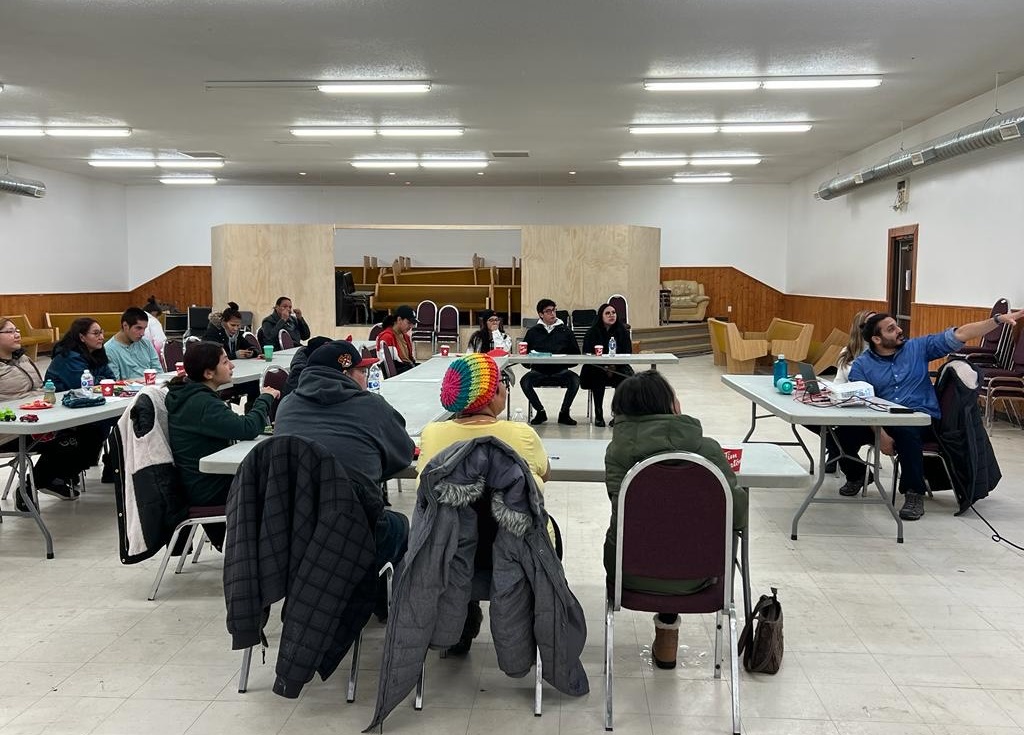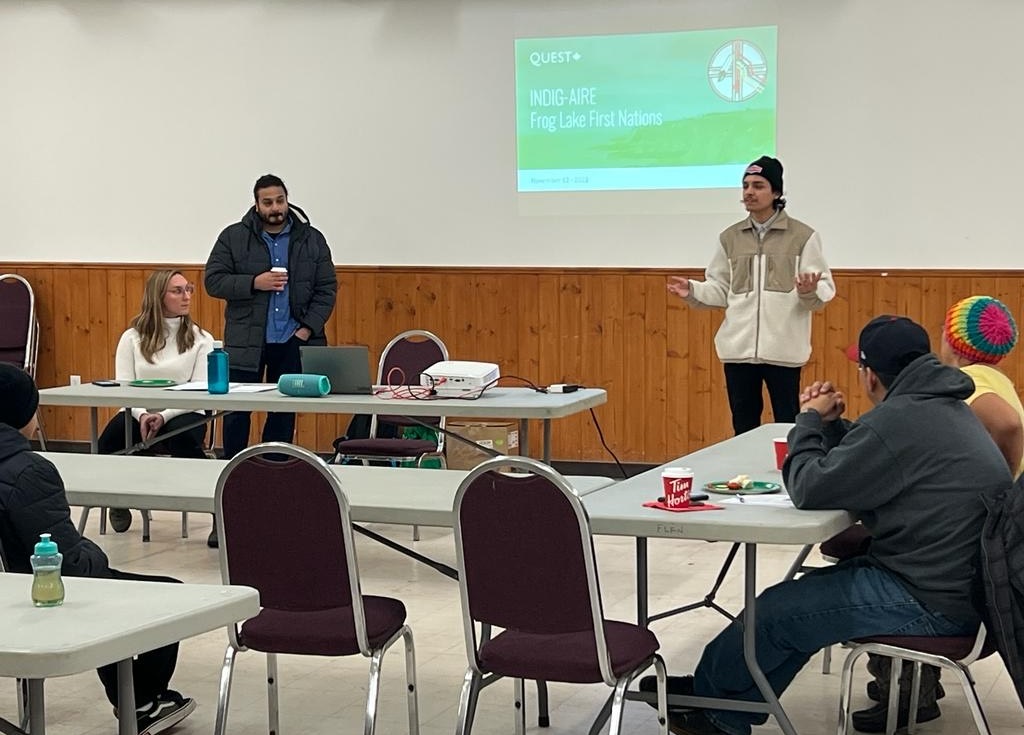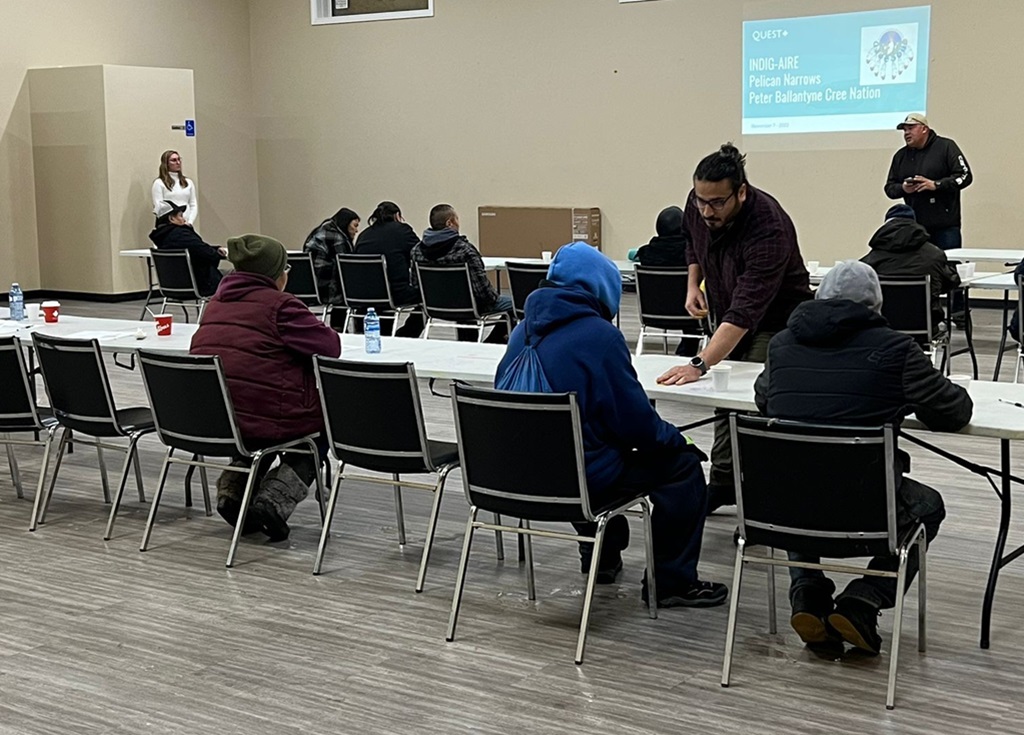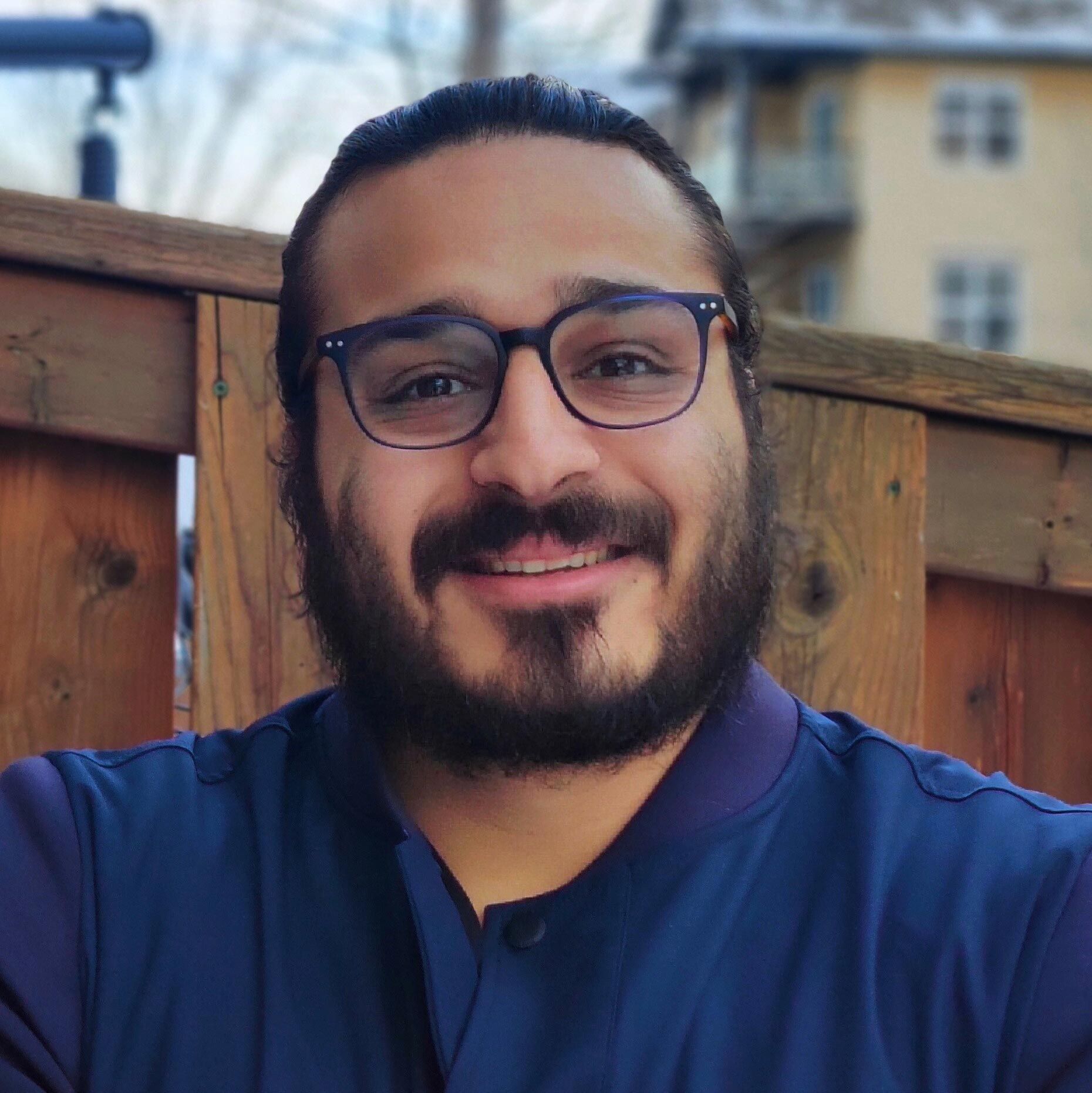Blog
As we transition to renewable energy, Indig-AIRE helps Indigenous communities lead the way
by Omar Farag, Senior Lead, Projects, QUEST Canada

As we transition to renewable energy, Indig-AIRE helps Indigenous communities lead the way
Indigenous communities on the Prairies of Western Canada face many challenges as they strive to participate in today’s renewable energy revolution. These communities, often remote and under-serviced, have been historically excluded from the benefits of energy advancements. Their lack of access to funding, technical expertise, and training opportunities has created a significant barrier to their involvement in renewable energy, net-zero projects.
QUEST Canada’s Indig-AIRE was introduced in 2022 as a response to these challenges, to foster self-sufficiency, promote environmental stewardship, and to create economic opportunities within these communities by providing a tailored approach, specific to local culture and site, to support Indigenous communities within their energy transitions. By providing them with the tools, knowledge, and partnerships necessary to develop and manage their own renewable energy projects, they can envision a future where Indigenous communities are leaders in the renewable energy sector, achieving energy sovereignty, economic prosperity, and environmental sustainability.
Collaboration and capacity building
One of the strengths of Indig-AIRE is its emphasis on collaboration. The program brings together a diverse range of partners, including Indigenous communities, academic institutions, private companies, and government agencies. By working together, key partners the University of Saskatchewan, Peter Ballantyne Group of Companies, RFS Consulting Services, Co-Mapping Solutions, and Sask Polytech, have been able to pool their resources, expertise, and networks to ensure the projects are not only technically sound but also culturally appropriate and community-driven. Capacity building is also a critical component of Indig-AIRE.
The programming is designed so Indigenous communities are not just passive recipients of renewable energy technology, but active participants in its development, management and maintenance. To this end, training sessions build the technical, financial, and managerial skills needed to sustain local renewable energy projects. Sessions include financial training for Community Energy Coordinators, or “CECs”, where they learn to identify, apply for, and manage future funding for community energy needs.
In addition, the program facilitates peer-to-peer learning opportunities, with the sharing of stories of success such as the Cowessess First Nation, who have successfully developed, installed and are operating a solar park in Saskatchewan, and taken control of their energy future.

Stories of Success
Several more renewable energy projects are making a tangible impact on Indigenous communities in the West. Including geo-spatial mapping analysis being conducted to identify the best sites for solar energy development in Frog Lake First Nation, and two biomass energy projects in Pelican Narrows and Southend. And not only are these projects helping to reduce the carbon footprint of these communities, they are also creating jobs and stimulating their respective local economies.
One of the standout success stories is the progress made by Frog Lake First Nation. Historically reliant on oil revenue, and driven by a desire to diversify its energy portfolio and reduce its environmental impact, “FLFN” made a bold, successful move in 2022 by hiring and training three Community Energy Coordinators. These three CECs now lead the community’s energy initiatives, and are playing pivotal roles in developing FLFN’s renewable energy strategy.
The community is in the process of issuing Requests for Proposals for their own solar park, a significant step toward their goal of energy sovereignty. And the community has established a dedicated energy committee that meets weekly to oversee progress. FLFN’s success is a testament to the power of local leadership and the importance of tailored support in driving energy source transitions.

Community impact
The impact of Indig-AIRE extends beyond the immediate benefits of renewable energy projects. The program has had a transformative effect on the communities involved, creating jobs, boosting local economies, and providing educational opportunities.
In addition to the three CECs hired in FLFN, Pelican Narrows, and Southend, the program has also supported two students from the University of Saskatchewan in completing their master’s degrees. And very recently, Didar Islam et de la Silas Asante shared a ‘Paper Presentation Award’ for their Geographers GIS Study Group Special Session presentation and poster at the 2024 Canadian Association of Geographers Conference in St. John’s.
Looking ahead, Sask Polytech is planning to launch a solar maintenance and operations training program specifically for community members, with the goal of training at least three individuals. These initiatives are not only helping to build a skilled workforce in renewable energy but are also inspiring the next generation of Indigenous leaders in the energy sector.
Poised to expand
Indig-AIRE is poised to expand its reach and impact in the coming years. The program is actively seeking to partner with more Indigenous communities across the Prairies. With the goal of supporting additional renewable energy projects that align with the unique needs and aspirations of each community, we’re exploring opportunities to develop wind and hydropower projects in particular, as well as to expand our biomass energy initiatives.
By broadening our collaborations, QUEST Canada aims to create a diverse portfolio of renewable energy projects that contribute to the resilience and sustainability of Indigenous communities. To help achieve energy sovereignty for Indigenous communities, we must not only help transition the community to renewable energy practices, but also ensure they have full control over their energy systems. As we look to the future, it’s clear that the transition to renewable energy is not just about technology, as energy sovereignty is not just about reducing carbon emissions.
It’s about empowering communities to make decisions that align with their cultural values, economic goals, and environmental priorities. It’s about people and communities. Let’s work together to help Indigenous people and communities not get left behind, but lead, as we head toward our net-zero, clean energy future.
Questions about Indig-AIRE?
Visit the Indig-AIRE webpage.
&
Don’t hesitate to reach out to Omar at ofarag@questcanada.org.


